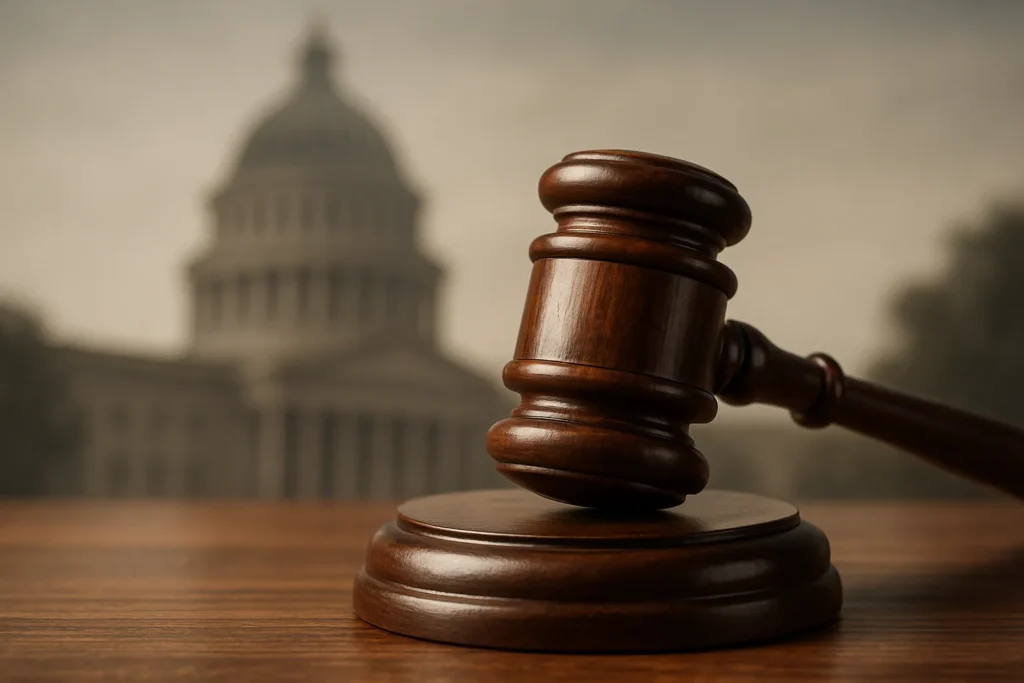Aide in the Spotlight: The Politicization of Mental Fitness Probes
Reports of the House Oversight Committee’s latest move—issuing a subpoena to Anthony Bernal, a longtime senior adviser to First Lady Jill Biden—mark another sharp escalation in congressional Republicans’ campaign to question President Joe Biden’s mental fitness. The drama unfolds as Bernal, sometimes dubbed Jill Biden’s “work husband,” ducked a scheduled deposition after reportedly agreeing to a voluntary meeting. The committee, led by Rep. James Comer (R-Ky.), claims it’s pursuing “accountability and transparency” but scratches beneath the surface reveal a familiar script: partisan theatrics designed to sow public doubt about a sitting Democratic president.
Why now? According to the committee, the probe centers not just on Biden’s cognitive abilities but also on alleged unauthorized use of the autopen for presidential pardons—implying that top staffers, rather than Biden himself, might have authorized sweeping executive actions. Former Biden aide Neera Tanden, in her own testimony, acknowledged relaying decision memos to senior staff for autopen approval, yet she denied knowledge of who issued final authorization. Comer pounced, projecting a narrative of chaos and cover-up inside the White House—a theme that, for Republicans, carries political utility heading into a high-stakes election year.
The implications extend beyond partisan narrative. House Republicans’ fixation on presidential health echoes a persistent historical anxiety—the fear of a leader no longer up to the job. The Twenty-Fifth Amendment was itself a product of this anxiety, ratified after the Eisenhower and Kennedy presidencies to clarify the procedures if a president is incapacitated. Comer’s subpoena letter reportedly suggests Congress might need to revisit or strengthen the Amendment. Is this a good-faith inquiry into governance or a cynical ploy to chill trust in the presidency?
The Real-world Stakes of Political Grandstanding
The spectacle of subpoenas, skipped depositions, and breathless accusations naturally commands headlines. Yet for many Americans, these made-for-TV moments feel increasingly disconnected from immediate democratic concerns. What’s truly at stake when inquiry after inquiry centers on weaponizing medical and administrative privacy? Beyond the timing, political context is everything. Republicans have, for years, leveraged committee investigations for electoral gain—a tactic honed during the Benghazi and Hunter Biden probes, both of which generated enormous heat but little lasting policy light.
Juanita Tolliver, political strategist and analyst for MSNBC, recently noted that voter fatigue is mounting: “People are smart enough to recognize the difference between government oversight and naked political showmanship. When Republicans lead with subpoenas and soundbites, it becomes hard to separate facts from political ambition.” Indeed, this latest Bernal subpoena risks falling into a well-worn trap: muddying the waters at the expense of substantive oversight.
A closer look reveals that Comer’s committee is probing alleged ‘cover-ups’ in the Biden administration just as GOP candidates struggle for an anti-Biden narrative that sticks. Polls show most Americans remain more concerned about healthcare, the economy, and inflation than the inner workings of signature machines in the West Wing. And yet these high-profile stunts capture the cable news cycle, providing viral clips for fundraisers and social media engagement but little in the way of governance.
“People are smart enough to recognize the difference between government oversight and naked political showmanship. When Republicans lead with subpoenas and soundbites, it becomes hard to separate facts from political ambition.” — Juanita Tolliver, MSNBC
Real-world stakes emerge for civil servants like Bernal, who is compelled to appear even after the White House suspended the shield of executive privilege. The prospect of staffers being dragged into political theater risks deterring talented people from public service. As noted by Harvard Law Professor Laurence Tribe, ‘These inquests rarely yield solutions to real problems, but they do create a climate where public trust erodes, and career professionals find themselves caught in crossfire.’
Weaponized Oversight and the Public Interest: Where is the Line?
Ongoing probes into executive branch decision-making, especially those wrapped in charged rhetoric about cognitive decline, can be traced back through decades of American political history. In the twilight of Ronald Reagan’s presidency, widespread speculation about his mental acuity circulated among the press and Congress long before his Alzheimer’s diagnosis. Similar themes emerged during the presidencies of Woodrow Wilson and Franklin Roosevelt—episodes that spurred reforms but also deepened partisanship. What’s different now is that the digital age amplifies every accusation, ensuring that doubts echo and persist even when evidence doesn’t.
Transparency—true, not performative—is critical to rebuilding trust in institutions battered by years of hyper-partisan narratives. While aggressive oversight is vital to democracy, there’s a point where scrutiny tips into spectacle, obstructing rather than advancing the public interest. Survey after survey—most recently a 2023 Pew Research study—reveals that public trust in Congress hovers near historic lows. Americans increasingly view these headline-grabbing probes as self-serving rather than service-oriented.
Republican lawmakers’ insistence that this inquiry will “clarify” presidential succession reads less as a constitutional emergency and more as election-year maneuvering. The House inquiry has shifted from uncovering substantive administrative malpractice to chasing the optics of a scandal—a shift documented by fact-checkers at CNN and the Associated Press, who found repeated Inflated claims about the prevalence of autopen decisions and unfounded aspersions regarding the president’s mental state. Real reforms to presidential succession or administrative transparency merit bipartisan scholarship and debate, not subpoena-fueled pageants.
Shouldn’t a nation grappling with gun violence, climate threats, reproductive rights rollbacks, and economic uncertainty demand genuine, constructive legislative focus? Heated drama over a staffer’s no-show and finger-pointing about pen signatures distract from the substantive work Americans expect. Republicans may insist these hearings are about accountability—but the evidence increasingly suggests politics, not principle, holds the gavel.

